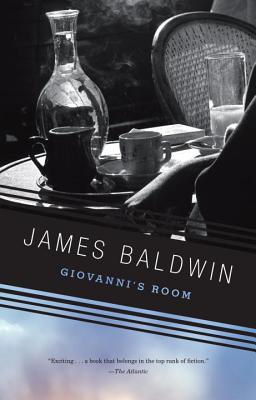APS TOGETHER
Day 12
Part 2, finish Ch. 5, p. 157-169 (from "By the time we found this great house" to The End.)
September 28, 2020 by Carl Phillips
Way back on 9/24, I quoted David saying “But the end of innocence is the end of guilt.” David has clearly lost any innocence before he ever came to Paris. As he becomes more estranged from Hella, though, he says: “My guilt, when I looked into her closing face, was more than I could bear.” Is this a contradiction, then? Or, given that he can still feel guilty about the situation with Hella, is there some part of it that remains innocent? I begin to think that his naïve thinking about Hella’s ability to somehow save him might be a form of innocence…
OR, given that David is the speaker, and not always trustworthy, maybe he’s just plain wrong about guilt. I myself believe guilt is a rescuing device, or can be – it can dissuade us from doing something we instinctively understand as wrong; and we can only know what’s meant by wrong, by having made mistakes – which is to say, we have to lose our innocence to know what that loss is. And guilt can make us pause before we break down yet another door of innocence.
None of this is unrelated to the relationship between Giovanni and David.
While David hopes that Hella can save him from being who he is, Hella wants David to define who she is – “Please let me be a woman…Don’t throw me back into the sea…,” she says. It’s a wrenching moment. She has spoken this way before, but there’s something about how deeply she seems to believe that she needs to throw away the things that are part of her (long hair, books, cigarettes) in exchange for a man and his ideas, his rules. Is this Hella’s innocence? Likewise, she intuits a lot about the relationship between David and Giovanni, but is she too innocent to get right to the sexual aspect of it? Or is this a willful ignorance, rather than facing a terrible truth for her?
Meanwhile, letting a man define you can lead to terrible consequences – Giovanni is a perfect example. David gave him purpose, a literal reason to live. David could allow himself to feel the same way about Giovanni as long as Hella remained ‘in play,’ the steady reminder that even if he is having sex with another man, he’s still a man by society’s definitions, i.e., he’s attached to a woman. Cue all those ads on Grindr, Scruff, etc., for “straight” men looking to have sex with another man…
After the truth about David becomes clear, Hella says “I’m going home. I wish I’d never left it.” This echoes what David said at the end of this book’s very first chapter, how if he’s known what was to occur in Paris, “I would have stayed at home.” By now, we can see that both Hella and David – and maybe all of us? – have an untrustworthy but persistent instinct to believe that home is synonymous with stability and with a kind of innocence. If only we hadn’t ventured out, we wouldn’t have learned so many things about ourselves and about those we’ve trusted. That’s the trouble with curiosity and exposure to new things – we get shaken from our earlier perceptions of the world and ourselves. But without getting shaken from them, we’d never learn anything, we’d never deepen. To age as a human is to accumulate experiences; and as they pile up, so do the many things we were innocent about, before we learned otherwise. This seems related to what Louise Glück says in her poem “Nostos’: “We look at the world once, in childhood./The rest is memory.”
“…this dirty world, this dirty body,” says David, and then ends his meditation on it with what may be the only false note in this novel: “I must believe, I must believe, that the heavy grace of God, which has brought me to this place, is all that can carry me out of it.” David has never seemed much of a believer, so this way of thinking doesn’t convince me. Maybe, though, just as Hella asks “what’s the good of an American who isn’t happy?” David can’t envision what it can mean to be a human being without religious faith. I don’t think Baldwin, despite his church background, really believes this. I do think he’d say we have to have faith in something, and perhaps first of all in ourselves. Not one of the characters in this novel has that kind of faith. And each suffers for it, accordingly. If there’s a governing message to this book, for me it’s that.
